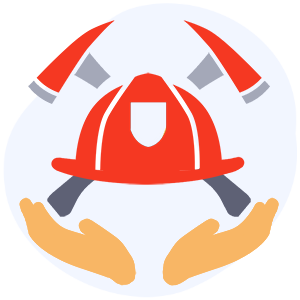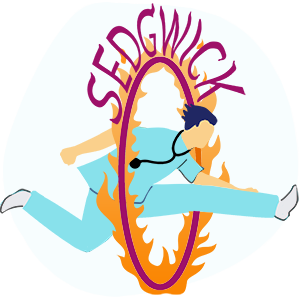Workers' Comp Providers Critical to First Responders
.png)
Consumed as we are by the minutiae of fee schedules, technical requirements, compliance, and everything else it takes to make workers’ comp e-billing work, even daisyBill can benefit from the occasional reminder of the bigger picture.
A recent story from KPBS News San Diego offers perspective on why it is critically important to make it easier, faster, and more sustainable for providers to treat injured workers.
San Diego’s Institutes of Health (IOH), a daisyBill client, was featured in recognition of their efforts to heal first responder injuries caused by work-related trauma, both physical and psychological. With the number of suicides among first responders reportedly exceeding the number of deaths in the line of duty, the systemic flaws of workers’ comp cannot be allowed to impede these kinds of efforts by providers.
See the story below. This is why daisyBill continues to fight the good fight for providers who choose to treat injured workers.
Institutes of Health: Addressing Invisible Injuries
When firefighter/EMT Ben Vernon was stabbed while responding to a call, he had more than knife wounds to recover from. Despite mending physically, Vernon found himself tormented and sleepless — to the point where “suicide was an option.”
Fortunately, Vernon got the care he needed, and is now on a mission to help ensure that the sometimes hidden toll of dangerous and high-stress work claims as few lives as possible.
Of course, that requires medical providers with specialized expertise.
At the forefront of this effort is the IOH, with its program devoted specifically to post-traumatic stress disorder (PTSD) and other illnesses common to front-line response work. Dr. Heechin Chae leads the program, with his extensive experience treating members of the military.
Supporting Providers = Supporting Injured Workers
As we can see, practices like the IOH have far, far more serious matters to contend with than the convolutions of workers’ comp billing and payment.
And as we know, the obstacles and friction that plague workers’ comp can negatively impact care, from delays in treatment to the simple fact that fewer and fewer providers are willing to operate in a dysfunctional workers’ comp system, leaving workers (including those traumatized in the life-saving service of others) with fewer options.
Everything that decreases provider administrative friction means more time and practice resources saved for what matters. Everything that makes treating injured workers more sustainable facilitates better medical programs. This is why we do our part.
daisyBill makes workers’ comp billing easier, faster, and less costly. Request a free demonstration below.
REQUEST DEMO
DaisyBill provides content as an insightful service to its readers and clients. It does not offer legal advice and cannot guarantee the accuracy or suitability of its content for a particular purpose.

